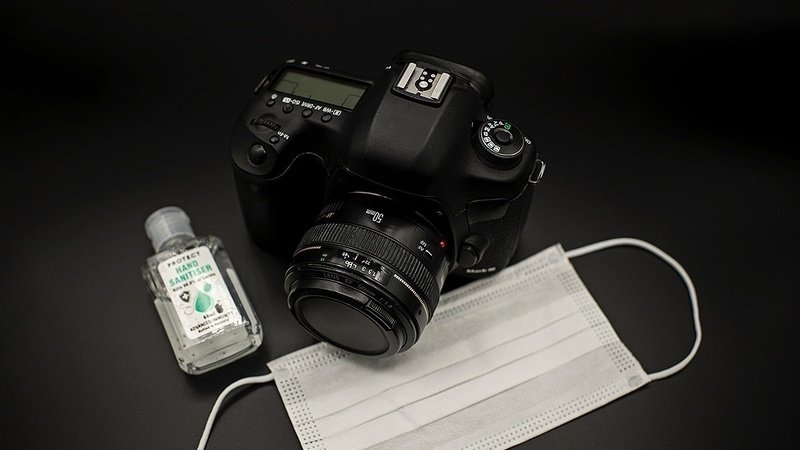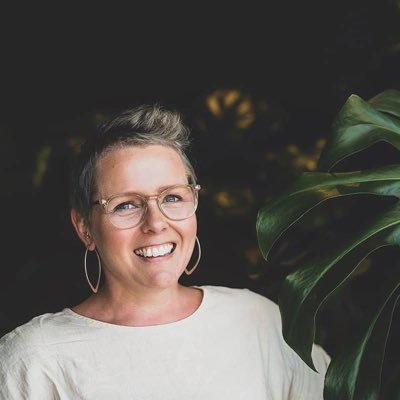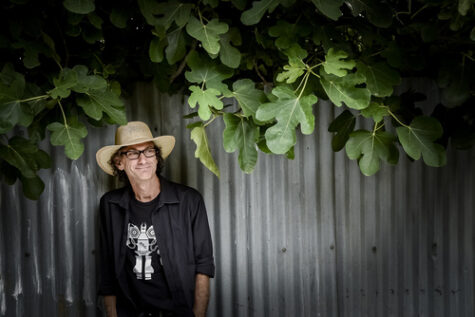With the majority of the East Coast population in lockdown, many Australian photographers are once again out of work and looking toward government assistance to stay afloat. Except without the one-size-fits-all financial security of JobKeeper, support now comes from new federal and state government programs, and many deserving photographers have unfortunately been cast aside.

This week Melburnians endured an unwelcome milestone: 200 days of lockdown, with professional photographers’ work left on hold for much of this time. While restrictions this year haven’t lasted as long as 2020, many feel exhausted from the relentless yoyo-ing in and out lockdowns.
‘It’s been extremely problematic gaining any sort of momentum with business this year,’ Melbourne photographer, Emily Black, told Inside Imaging. ‘Despite the optimism early in the year, the climate has shifted so frequently it’s hard to know whether we’re coming or going.
‘School and kindergarten photographers in particular have been the hardest hit this year. Rolling lockdowns, together with the conservative directives from the Department of Education have meant school and kindergarten photographers are not allowed back on site long after their industry peers have returned to sessions in studios and outdoors.’
Last year Emily, then-AIPP Victorian Council president, led a successful advocacy effort to introduce a face mask exemption for portrait photography subjects. The issue was that while some portrait photographers could legally work, it was illegal for anyone to remove a face mask, meaning a client’s face couldn’t be captured without breaking the law.

Emily’s lobbying efforts led to her being appointed the inaugural AIPP Advocacy Committee Chair. She’s now engaging the Department of Education and Training Victoria (DET) on behalf of schools and kindergarten photographers like Melburnian Jina Zheng, who has been dealt a severe blow with unfortunate timing of lockdowns.
‘This year there was a lockdown halfway through Term Two, which wiped out four weeks of my kindergarten bookings,’ Jina informed Inside Imaging. ‘Then the recent two lockdowns wiped out seven weeks of bookings. And that’s assuming we can photograph from September 2 onward.
‘Even when lockdown lifts, it takes at least a couple of weeks before the Department of Education will allow photographers to visit kindergartens, which wipes out those precious “snap openings” that Victorian’s have enjoyed this year. Also, we can’t shoot during school holidays, so the brief freedoms we enjoyed between lockdowns this year during the school holidays are not helpful to kindergarten photographers work-wise at all.’
When Melbourne is in lockdown, Jina qualifies for Covid-related financial assistance. But a problem for the schools photography sector is that when lockdowns lift and financial support ends, the DET maintains a ban on professional photography at education facilities, leaving Jina and others with no income or government assistance.
Another issue faced by photographers, and many other business operators, is whether or not to keep future bookings open for periods beyond the current lockdown dates. While the Melbourne lockdown has been extended for two weeks, prior experience suggests it will run for much longer. It’s a logistical and ethical conundrum as to whether or not bookings for a period when the state might be open, but most likely will not.
Jina’s not taking any new bookings in anticipation that, like last year, she will be slammed with kinder photo shoots in a short period of time.
We have all been impacted by Covid in a range of ways. Has the pandemic and subsequent lockdowns reduced your income by...
- 50 percent and higher (57% Votes)
- 25 - 50 percent (16% Votes)
- Nothing. It's business as usual (15% Votes)
- 1 - 25 percent (12% Votes)
Rescheduling the already postponed shoots has become a ‘huge challenge’ for Emily, but her biggest priority is focussing on her mental health. This year it’s been a bigger struggle to feel secure in life and business.
‘I cannot be who I want to be as a parent, partner, business owner or creative if I am not in a good head space. It’s the classic line of filling my bucket before I can give to others. I don’t have it all together all the time, and that is okay. It’s recognising it and controlling what we can control, especially with so much outside of our control.’
Jina has also been feeling the full weight of 200 days in lockdown. ‘[Last year] …no matter how hard things were, I just ploughed through. This year I just feel tired and numb with no fight left in me.’

After pouring everything into the last 10 years to build up a successful photography business – her dream job since being a child – it’s the first time Jina has strongly considered throwing it in. ‘I never thought I’d ever considered giving it up,’ she said
Jina and Emily both acknowledge how fortunate they have been to have wonderful long-term clients, who have been supportive and understanding.
‘Clients, I think, for all photographers are more than willing to return than ever,’ Emily said. ‘The rescheduling itself though takes quite a mental toll. It’s very much a time of feast or famine, literally and figuratively for many.
‘We may have the most incredible clients in the world but financially, it’s wearing the entire industry down. Even with grants that are available, not all businesses are eligible, or are eligible in one round and not the next, it’s often confusing, what the current State Government grants might offer, and how to apply for any further assistance at state or national level. Many [photographers] are also not registered for GST, or are contracting themselves and are pretty broken.’
GST: the business support gatekeeper
Registering for GST isn’t necessary for micro business owners who don’t expect to turn over more than $75,000. Some accountants even advise against it, as it requires additional administration and reporting. Why add an extra layer of complexity?
Yet to be eligible for two major Victorian State Government business grants, applicants must be registered for GST.
The $4800 Business Costs Assistance Program is open to businesses which have ‘incurred direct costs because of the restrictions and cannot fully operate remotely’; and a $10,000 Small Business Covid Hardship Fund is for businesses that experienced a 70 percent turnover reduction for a two-week period.

Melbourne-based freelance photographer, Darren James, was shocked to discover his business didn’t qualify for either Victorian business grants in the forth and fifth lockdown because he wasn’t registered for GST.
‘I’ve been doing this job for 10 years, supporting my family this way. I pay my taxes and I’ve never put my hand out [for financial assistance] pre-Covid,’ he told Inside Imaging. ‘So it really annoyed me that registering for GST, something that’s completely optional, is a requirement for State Government support.
‘No one ever said “if you don’t register for GST, you might not get government support”. If there was a notification or a warning I know that myself, and many others in a similar situation, would have done it.’
Between the last three lockdowns, starting from the end of May until now, nine jobs have been cancelled equalling roughly $12,000. ‘In the spirit of what these grants are set out to do, we should be eligible’, he said.
‘I can understand that they want some verification to show you’re a legitimate business. Nobody wants public money wasted. But to be based on something that’s not a [business] requirement, it doesn’t make any sense. Why not base it on factors that are required for a legitimate business to operate, like having an ABN, and showing tax returns and proof of invoices.’
By comparison, the NSW Government micro-business grant has no GST requirement. To receive the $1500 fortnightly payment, applicants have to submit evidence of a 30 percent turnover decline.
Darren immediately registered for GST, but by the time the application went through it was already too late. The grants for lockdown four and five had expired. He qualified for the Federal Government’s Covid-19 Disaster Payment, worth $750 per week, but it’s a much lower wage than what he projected to earn over this period. In the following weeks he was forced to sell some non-essential photography equipment to stay afloat.
Pre-Covid, Darren was regularly shooting for humanitarian aid NGOs in the Pacific Islands and South East Asia, and when travel came to a halt he pivoted toward local clients primarily in the healthcare and corporate sector.
He’s grateful to have now been accepted into the $4800 Business Costs Assistance Program for lockdown number six, although he still feels it’s unfair to have missed out on the first rounds.
‘I delineate between lockdowns four and five, when you didn’t know that registering for GST was important, and lockdown six, by which time we had been given fair warning that registration is required,’ he said.
Darren’s friend who is a freelance photographer with a nearly identical business model – similar overheads and profits – received $12,600 worth of grants just for lockdown four and five because he was registered for GST. However micro business owners like Darren who weren’t registered for GST before May 27 were unable to receive the same grants.
By comparison, a friend who is a freelance photographer with near identical business model – similar overheads and profits – qualified for close to $15,000 worth of grants because he was registered for GST.
Like Emily stated earlier, Darren found the government information regarding eligibility criteria confusing and at times incorrect. The initial Business Costs Assistance Program criteria was worded to exclude businesses trading below $75,000. And while businesses not GST registered were rejected, the application document indicated that non-GST business could apply by having a Statutory Declaration from an accountant. The website has since been updated to reflect this.
Emily and Jina are working together to lobby the DET to allow the Kindergarten photography sector to return to work when the lockdown lifts.
Here’s Jina’s open letter to DET:
Dear DET or whoever is in charge of making this change,
I am a kindergarten photographer and I love my work.
I am fully vaccinated (two doses of Pfizer). I work with a zoom lens (that actually can’t focus when people/objects are less than two metres from me). I physically tape my mask to my nose all day when I work in kinders during the times that photography was allowed (the tape keeps the mask in place and prevents my glasses from fogging up. I have a bottle of hand sanitiser in my pocket at all times, and sanitise my hands many, many, many times a day. Pretty much before and after I have to touch anything, like signing in or moving a chair out of the way.
I am fully supportive of the lockdown measures the government puts in place to keep us safe.
However, when the lockdown lifts for all small businesses, it is devastating to not be allowed to photograph at kindergartens.
Firstly, unlike the periods when everyone is locked down, there is no financial support during times that photographers can work, but kindergarten photographers can’t.
Secondly, it takes time to process photos after I’ve taken them, time for families to view and order, and time for printing and packaging the orders. Plus kindergarten kids are often new and unsettled in Term 1, there really is only 20 weeks in a year (Term 2 and term 3) for kindergarten photos to occur. Therefore, ‘postponing’ kindergarten photos really means ‘cancel’.
I, like 90 percent of my fellow kindy photographers, are sole traders. We pride ourselves in producing the most beautiful kindergarten photos we can for families to treasure for a lifetime. We are experts with the camera and experienced at working with children. We can’t simply ‘hire staff’ to expand our capacity when we’re asked to photograph eight months of kindergarten bookings in the last eight weeks of the year.
Last year, I was forced to do just that, squeezing eight months of work into eight weeks. While everyone celebrated Christmas and new year, I was still working until midnight every night to process the photos and orders for the kinder parents. Not to mention fending off the multitude of e-mails from angry parents about how disappointed they were that their photos were not ready in time for Christmas. Photo sales took a great hit too because the photos weren’t ready by Christmas. All the while I was working 12-15 hour days and barely saw my kids between November and mid-January.
It’s not as simple as telling kindergartens that have pre-booked with me to ‘find someone else’. EVERY kindergarten photographer was booked and working overtime at that time, there IS no one else. To say ‘no’ to them will mean no kinder photos for their families and destroy the relationship I’ve built up with the kinder for years. My only option was to grit my teeth and push myself to the brink.
When all the photos were finally in the families’ hands in mid-January, I was exhausted and shell-shocked and depressed. I couldn’t bear the sight of my camera for months. I caught up with fellow kindergartens photographers for a drink in mid-February and was not surprised to hear that they all went through the same experience.
I understand that if the general government lockdown continues, we may have to repeat the same experience as last year.
But, I think it is incredibly unfair and unnecessary for DET to ‘postpone’ photography when lockdown lifts. Please understand that this DET decision is destroying my business that I have built up over ten years and love.
Thank you for hearing me out,
Jina





I certainly feel the pain for Melbournian creatives. It has been a hard slog.
Sydney is now officially heading for 13 weeks (+) of lock down time. So for now it’s reschedule or cancel and return deposits for us up until Christmas. We have one booking rescheduled for March as they wouldn’t do anything this year.
Hopefully next year there’s a few brave business event organiser that will program in events for the first 2022 qtr.
GST status is a strange measure of business validity for support. The extra documentation isn’t too bad though if you have a system in place.
In a way it presents your business to larger clients as more established if you do?
If any photog needs to chat I’ve got time 🙂
Hi Orlando. I think that this crisis will certainly motivate more small businesses to be GST registered for sure. Perhaps that’s good, they deserve future support. As you say though, a strange measure for validity, given that no laws were broken by legitimate sole traders who had supported themselves and paid all their taxes. Hard to know what was the thinking behind Victoria Government turning their back on those small businesses yet generously supporting others who needed it less.
I find it absurd that GST is a measure they use to discriminate against low income businesses. Really they are the most likely the ones who need the assistance more than other businesses that turn over more than $75K. It’s unjust!
Totally unjust Rose. The complete lack of support for two lockdowns has ruined many sole traders while others, doing the same amount of business (just that they ticked a GST box) have received generous pay outs, in many cases way beyond their lost trade. Hard to believe how unfair.